So, you want hundreds of billions of pounds of government-backed construction projects, and maybe a 30% pay rise too? Well, thereŌĆÖs one country that has untold riches beyond your wildest dreams. Thomas Lane braced himself and booked a flight
When you clear the long queues at Riyadh airportŌĆÖs immigration desk you feel a palpable sense of relief. Getting into Saudi Arabia is a convoluted business: you need a company or a relative in the country to sponsor your visa, only one airline, BMI, flies there direct and thereŌĆÖs even a special booth at Heathrow where your paperwork is examined before you even get to the check-in queue. Now that youŌĆÖve got through all that, that sense of relief soon gives way to a mix of excitement and trepidation as you step through the sliding exit doors into the country.
The trepidation is the result of all the negative stuff everyone is familiar with.
When most people think of Saudi Arabia, they think of public beheadings, flogging and amputations. These things tend to happen only if you do something wrong (a term that includes a range of behaviour that is fairly normal in the UK), but ordinary life there doesnŌĆÖt sound like a bundle of laughs, either: drinking is illegal, women cannot appear in public unless they are covered from head to toe in black robes or even drive a car, and westerners have to live in walled compounds protected by armed guards.
The excitement is that, as one booming economy after another crumbles into dust, this is a land of opportunity. So, is it time for companies to revisit this overlooked market to see if the potential rewards outweigh that initial apprehension?
Is it worth it?
The first good news is the Kingdom is not as bad as it sounds ŌĆō although it is very much a manŌĆÖs world. Riyadh, the capital, is more conservative than other parts of the country, such as Jeddah, and is an undistinguished city, but it is not unpleasant. The dry heat means you can walk around comfortably and, unlike the UAE, the streets are lined with shops. which makes it feel less anonymous. Expats are fairly positive about living there, although some say itŌĆÖs boring (see below).
The even better news is that the Saudis have big plans ŌĆō and the cash to see them through. Paul Williams, the director of trade and investment at the British embassy, says the government has $400bn in the bank waiting to be spent on construction projects over the next five years, and about $1 trillion worth of projects in the pipeline. And this money is not going to be squandered on speculative development. Unlike the UAE and Qatar, which rely on huge expat populations to create a market, Saudi Arabia is building for its own population. There are 27 million people living there, out of which 21 million are Saudi nationals, and the population is projected to double in the next 30 years.
To support this explosion, the government will need to create homes, universities, schools, and infrastructure. It plans to do this by building six ŌĆ£economic citiesŌĆØ worth ┬Ż69bn, complete with housing, education and employment opportunities. Four of these have already started on site, including the flagship, King Abdullah economic city near Jeddah, which will be the size of Washington DC. The plans also include 2,000 schools, eight universities and 28 power stations and desalination plants. Work has also started on a financial district in Riyadh.
Furthermore, the government plans to build new railway lines linking Jeddah with Riyadh, Mecca with Medina and a freight line for minerals from Riyadh to Hazm Al Jalamid. There are new roads in the pipeline, too, including one linking Damascus and Oman.
ItŌĆÖs very tribal here. If you are working with Saudis who belong to well-known tribes, they will get things done
Saad Al-Adhami, UKTI
All this work means great opportunities for companies from overseas. According to Phil Dalglish, the country director for Buro Happold in Saudi Arabia, the country could use UK expertise. ŌĆ£Local consultants often hand over designs that lack detail,ŌĆØ he says. ŌĆ£Sometimes they arenŌĆÖt even qualified to do the job ŌĆō as a result, we do design audits and find, for instance, that buildings donŌĆÖt have enough cooling.ŌĆØ This problem is exacerbated as many contractors donŌĆÖt have in-house design teams to work up the detailed drawings needed for construction.
Buro Happold is filling this gap by doing the detailed drawings for installations on the Riyadh womenŌĆÖs university for El Seif Engineering Contractors, which does not have sufficient in-house capacity. ŌĆ£ItŌĆÖs bread-and-butter stuff at the bottom of the food chain,ŌĆØ says Dalglish, ŌĆ£but itŌĆÖs still a valuable exercise, as its all about maintaining relationships.ŌĆØ
The reason why firms like El Seif are under pressure is because only it and three other contractors ŌĆō Saudi Binladen Group, Saudi Oger and the Consolidated Contractors Company (CCC) ŌĆō are qualified to work on government-funded projects. These firms bid for jobs and, once they win one, act as clients by designing and building it.
Recently, however, two French contractors, Suez Energy and Veolia Water, have prequalifying for government work and have won jobs to design and build water desalination plants.
Bear in mind, Saudi Arabia is not a get-rich-quick playground ŌĆō clients know things are tough elsewhere and will work to negotiate the best possible price.
What it takes
According to Saad Al-Adhami, senior trade and investment officer for UK Trade & Investment, the Saudi Arabian general investment authority is ŌĆ£very keenŌĆØ to get companies to come to Saudi Arabia. This organisation manages investment in infrastructure, including education and the construction of the economic cities.
However, companies that are interested need to commit properly to the country ŌĆō Al-Adhami says that simply having an office in Dubai will not do. ŌĆ£ItŌĆÖs better to have a presence here, as it shows commitment to the country,ŌĆØ he says. ŌĆ£Saudis are very proud of their country and see it as a negative if it is being covered from Dubai ŌĆō they see it as being treated as second best.ŌĆØ
Although companies can now set up there even if they are 100% foreign-owned ŌĆō a process that takes about six months ŌĆō Al-Adhami advises that the best way in is to form a joint venture with a Saudi company. ŌĆ£ItŌĆÖs best to partner with someone on a specific project,ŌĆØ he says. ŌĆ£ItŌĆÖs very tribal here. If you are working with Saudis who belong to well-known tribes, they will get things done.ŌĆØ
IŌĆÖm at an embassy do seven weekends out of 10. In terms of a social life, itŌĆÖs not as liquid as other places, but itŌĆÖs still good
Andy Isherwood, Rider Levett Bucknall
Al-Adhami specialises in matchmaking Saudi and foreign companies and says this usually works very well. ŌĆ£Whenever we introduce a British company the Saudi partner is always very welcoming,ŌĆØ he says. ŌĆ£We seldom receive negative feedback. They are always ready to meet UK companies because of the amount of work they have.ŌĆØ
They certainly seem busy. For instance, Derek Kemp, the executive director for operations for El Seif, is frantically fielding requests from colleagues and answering phones and can only spare a few minutes to chat to ║┌Č┤╔ńŪ°. He says El Seif has bid to build the Riyadh womenŌĆÖs university with CCC, which will stretch his company to the limit. ŌĆ£If we get anything else of that size we will seek someone else to form a joint venture,ŌĆØ he says. He has been inundated by individuals seeking work, but wants to collaborate with an established company. ŌĆ£If you recruit a whole team, there is a risk, as 25% of them could turn out to be no good,ŌĆØ he says. ŌĆ£If you bring in a fully set-up operation there are benefits, because it would take time for a team to bed down.ŌĆØ
Forming a joint venture makes particular sense for contractors because of the effort involved in creating a presence in a country. ŌĆ£A consultant can put a couple of guys in an office, go out knocking on doors and ship it back to another location if they get work,ŌĆØ says Dalglish, ŌĆ£but a contractor canŌĆÖt do that. It needs equipment, a substantial team, workers, visas and accommodation. ItŌĆÖs a big commitment.ŌĆØ
It seems that many consultants are adopting the approach that Dalglish describes. Rider Levitt Bucknall has just set up an office (see below), Faithful + Gould and engineer WSP recently arrived and fellow engineers Halcrow and Hyder are taking on work. Buro Happold, meanwhile, is so well established that it is frequently asked to act as lead consultant on smaller schemes, which means appointing the architect.
Dalglish says he has been approached by several firms hopeful of getting work, including 3D Reid, and Skidmore, Owings & Merrill.
But as yet, no UK contractor has taken the plunge and set up in Saudi Arabia. There are reports of joint ventures, and Kemp says he has had ŌĆ£taps on the shoulderŌĆØ from overseas contractors. Kier is involved in developing and operating a phosphate mine with Al-Qahtani and Commedat and Mace is moving staff to the country. There are rumours that Dubai contractor Arabtec is setting up wholesale in Saudi Arabia.
Some Saudi contractors have abandoned hopes of working with UK firms and turned to other countries instead. Saad Mahmod, director of contracts and development at the Absal Group, which works mainly on fit-out contracts and in steel fabrication, spent many years living in the UK and has great respect for British contractors. Yet even he grew sick of waiting. ŌĆ£As most of the experience is in the UK, I naturally turned to UK contractors, but even though things were booming I had no positive response,ŌĆØ he says. Instead, he is working with a Malaysian and a Turkish contractor to assist the companyŌĆÖs move to mainstream contracting.
But now, it seems, UK firms are crawling back. ŌĆ£My email is full now with messages from those companies in the UK that I talked to two years ago,ŌĆØ he sighs. ŌĆ£They donŌĆÖt have a clue whatŌĆÖs going on here. ItŌĆÖs only an hour-and-a-half away from Dubai, but it might as well be 16 hours. ItŌĆÖs not too late now but it could be in six months.ŌĆØ
How to do business
Doing business in Saudi Arabia is no more onerous than anywhere else in the Middle East. Saudis are courteous and hospitable, but there are a few points of etiquette you should bear in mind. On meeting, swap business cards with your right hand and if a woman is present wait for her to offer her hand to shake first. Avoid pointing the soles of your feet at your hosts as this is considered disrespectful.
Never dive straight into business at a meeting. Instead, enjoy some small talk over a cup of coffee ŌĆō after a maximum of three cups gently rock the cup from side to side to indicate you have had enough and are ready to move on to business. Never lose your temper.
Clients are a mix of big contractors delivering government-funded projects and private developers. Consultants can work directly for government departments. ║┌Č┤╔ńŪ° up long-term relationships is important in Saudi Arabia. Lump-sum contracts are common and there is a dedicated form of contract for government projects.
When tendering for work, expect to provide 10% of the value as a bond. This will be returned whether you win or lose the contract. Successful bidders may be asked for a 5% performance bond which is returned at the end of the project. Negotiate your way out of paying this if possible.
According to Phil Dalglish, Buro HappoldŌĆÖs boss in the country, the Saudis are no better or worse than anywhere else when it comes to payment. He is concerned that newcomers risk getting burned. ŌĆ£With all the new consultants coming out here, I do worry that there will be a high level of abuse as they will pick the wrong clients who wonŌĆÖt pay them and lose their shirt,ŌĆØ he says.
Disputes are best avoided ŌĆō although Saudi law recognises contracts, the problem is you may be faced with a five-year wait before it gets to court.
What it's like to live there
The question ŌĆ£WhatŌĆÖs it like?ŌĆØ will be at the front of peopleŌĆÖs minds when contemplating a move to Saudi Arabia. Well, for one thing, salaries are usually 10% to 30% higher than the UK. However, there is no doubt that life is much more restricted: alcohol is banned, women canŌĆÖt drive and must wear the abaya ŌĆō a long black cloak ŌĆō and cover their heads in public. There are only 100,000 western expats in Saudi Arabia, so itŌĆÖs a close-knit community. ŌĆ£You need to be the right sort of person to live here,ŌĆØ says Matthew Jordan, an assistant surveyor with property adviser DTZ. ŌĆ£It helps if you are sociable. I spend more time socialising with people through sport rather than meeting people in bars.ŌĆØ
The main problem is that there isnŌĆÖt much to do. There are no cinemas, bars or theatres, but there is satellite television and the internet. Because of this, most westerners choose to live on compounds that are specifically for expats. Here they can mix with other westerners and women can socialise normally ŌĆō outside the compounds women are forbidden from mingling with people who arenŌĆÖt relatives.
Compounds are heavily defended against terrorist attack, and with good reason ŌĆō in May 2003, 30 people were killed in Al-Qaeda bomb attacks on Western compounds. Expect bomb sweeps on entry and men with machine guns to be posted on the edge of barbed wire topped perimeter walls.
Inside, some of the better compounds resemble holiday camps ŌĆō Bougainvillea-draped villas, large swimming pools, shops, restaurants, bowling alleys, tennis courts and even golf courses. On the other hand, some are grotty, and the long waiting lists means you may end up in one of the less impressive ones. The shortage of places also means they are expensive ŌĆō on the best compounds, a three to four-bedroom villa costs ┬Ż50,000 a year and a two-bedroom one ┬Ż35,000. However, companies normally pay for accommodation and transport.
Compounds are usually located outside the city centres, but traffic is much lighter than Dubai, so commuting times are short. Unfortunately, the standard of driving is so bad that many women donŌĆÖt mind not being able to drive. ŌĆ£If my wife was told she was able to drive tomorrow, she would be horrified,ŌĆØ says the British embassyŌĆÖs Paul Williams.
There is some party life in Saudi Arabia. Embassies regularly host parties and serve alcohol, owing to their diplomatic immunity. ŌĆ£IŌĆÖm at an embassy do seven weekends out of 10,ŌĆØ says Andy Isherwood, an associate with Rider Levett Bucknall. ŌĆ£In terms of a social life, itŌĆÖs not as liquid as other places, but itŌĆÖs still good.ŌĆØ
Home-brewed alcohol can be bought in illegal bars on some compounds, although there are harsh penalties for those who get caught. Instead, as Bahrain is only an hourŌĆÖs flight away, Isherwood often goes there with friends for weekends.
Despite the restrictions, many speak positively about life in Saudi Arabia. Jordan is 25 and came over from fast-living Dubai. ŌĆ£If you talk to people in the UAE they will say Saudi is rubbish, as they havenŌĆÖt experienced it,ŌĆØ he says. ŌĆ£I was surprised when I came here. I had prepared myself for the worst, but it was much better than I thought.ŌĆØ
A tale of two companies
New kid on the block
 Cost consultant Rider Levett Bucknall (RLB) decided to set up an office in Saudi Arabia last year and started the process in earnest at the beginning of 2009. The firm has the advantage of having worked with defence company BAE Systems on the construction side of a fighter aircraft deal with the Saudis for 30 years. ŌĆ£It means we have got to know the market over a period of time,ŌĆØ says Andy Ritchie, the firmŌĆÖs global board director. ŌĆ£In the past 12 months we have been carrying out research on the market here. Last autumn we decided to commit properly.ŌĆØ
Cost consultant Rider Levett Bucknall (RLB) decided to set up an office in Saudi Arabia last year and started the process in earnest at the beginning of 2009. The firm has the advantage of having worked with defence company BAE Systems on the construction side of a fighter aircraft deal with the Saudis for 30 years. ŌĆ£It means we have got to know the market over a period of time,ŌĆØ says Andy Ritchie, the firmŌĆÖs global board director. ŌĆ£In the past 12 months we have been carrying out research on the market here. Last autumn we decided to commit properly.ŌĆØ
Ritchie has big ambitions for the new operation. He was responsible for setting up an RLB office in Hong Kong in 1993 with 10 people. Over 10 years he built this up into a major regional operation, employing 250 staff. ŌĆ£I want to replicate that here,ŌĆØ he says. ŌĆ£At the moment we have six people, but I want to get that up to 250.ŌĆØ
The firm will provide a mixture of services, including traditional cost management and construction management, which in Saudi means a combination of project management and supervision. Ritchie says there is a demand for contract administration and commercial management, and he thinks there is a market in helping international clients break into the country.
For now, Ritchie is working from his room on a compound ŌĆō he says the firm should have an office by June. He was lucky to find a place on a good compound.
Despite this temporary start, RLB is getting plenty of work. It is carrying out contract administration for El Seif on the King Abdullah financial district and doing cost management on the King Abdullah university of science and technology in Jeddah. It is also project and cost-managing a fit-out for Barclays Capital, and has just won a job on the Rafal tower in Riyadh ŌĆō a mixed-use building that includes a hotel, apartments and offices.
Ritchie is pleased with RLBŌĆÖs progress. He says: ŌĆ£From a cold start, we have secured some work, are getting into some bigger stuff and have got to know the clients. I am very, very optimistic about the future.ŌĆØ
http://www.building.co.uk/Pictures/Web/u/w/c/Andy-Ritchie.jpgThe old timer
 Engineering consultant Buro Happold has been in Saudi Arabia since the seventies ŌĆō so long, in fact, that it is now redoing buildings it did 25 years ago. Its heyday was the late eighties, when it had between 80 and 90 staff. This dropped to about 50 after the bombings in 2003. ŌĆ£We largely demobilised,ŌĆØ says country director Phil Dalglish (pictured). ŌĆ£Since then itŌĆÖs just stumbled along as we couldnŌĆÖt get people to come out here. To get people out here you either had to pay them a fortune or put up with substandard engineering staff.ŌĆØ
Engineering consultant Buro Happold has been in Saudi Arabia since the seventies ŌĆō so long, in fact, that it is now redoing buildings it did 25 years ago. Its heyday was the late eighties, when it had between 80 and 90 staff. This dropped to about 50 after the bombings in 2003. ŌĆ£We largely demobilised,ŌĆØ says country director Phil Dalglish (pictured). ŌĆ£Since then itŌĆÖs just stumbled along as we couldnŌĆÖt get people to come out here. To get people out here you either had to pay them a fortune or put up with substandard engineering staff.ŌĆØ
How times change. Now Dalglish finds it much easier to get staff, although he is worried they will be out of the door the minute things pick up elsewhere. ŌĆ£People used to say on their CV that they didnŌĆÖt want to work in Saudi. ThatŌĆÖs changed now, but my worry is that when the economic situation improves they will be off.ŌĆØ These days there are about 30 staff in the office.
The firm is well respected in Saudi Arabia and works for contractors including Saudi Binladen and for government departments including the Arriyadh development authority, which is charged with delivering government projects in Riyadh. Buro Happold is frequently appointed lead consultant on projects and is given responsibility for selecting the rest of the project team and putting the project out to tender.
What advice does Dalglish have for companies setting up in Saudi Arabia?
He says they shouldnŌĆÖt expect things to boom overnight. ŌĆ£I think it takes years to build a good team ŌĆō you canŌĆÖt just plonk 30 people down and make it work,ŌĆØ he says.
He reckons clients will be initially cautious when dealing with new companies, and will want to know they are there for the long term. Despite this, he thinks there are plenty of opportunities, and that life is easier in Saudi Arabia than it was 25 years ago. ŌĆ£In the eighties there was no satellite TV, internet or mobile phones, and overseas calls were difficult,ŌĆØ he says. ŌĆ£Your entertainment was just socialising, pirated videos and working.ŌĆØ
Useful contacts
British Embassy, Riyadh
+966 1 488 0088
Saudi Arabian General Investment Authority
+966 1 448 45 33
Council of Saudi Chambers of Commerce & Industry
+966 1 405 3200
Riyadh Chamber of Commerce & Industry
+966 1 404 0044
Jeddah Chamber of Commerce & Industry
+966 2 651 5111 x 3142
Eastern Province Chamber of Commerce and Industry, Dammam
+966 3 857 1111
Postscript
Original print headline: 'Make a wish...'






















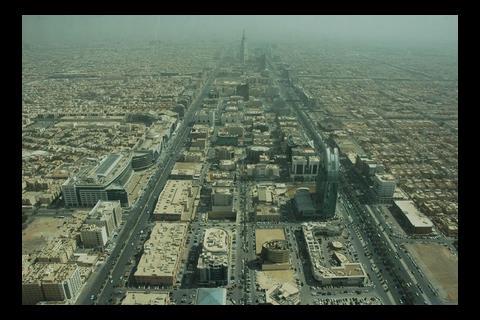
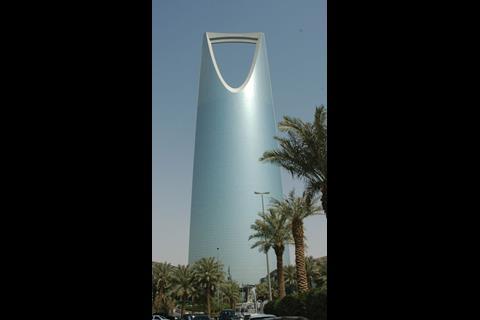

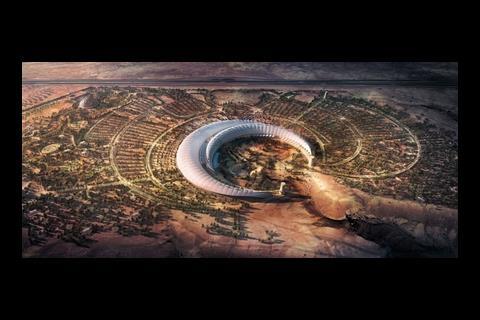
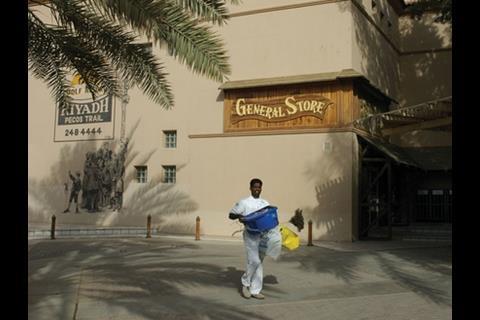
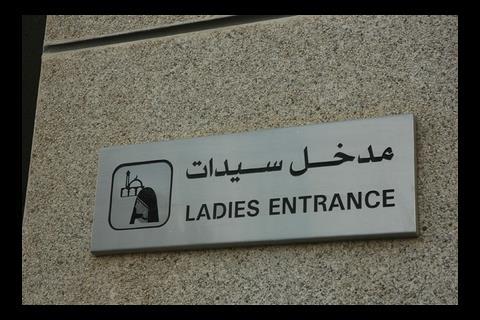
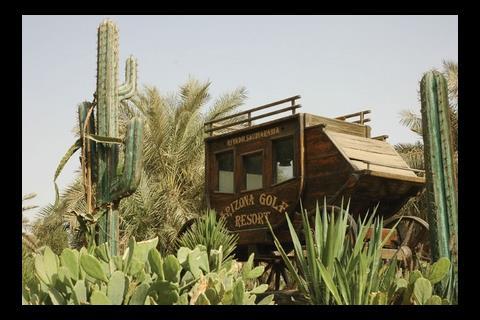
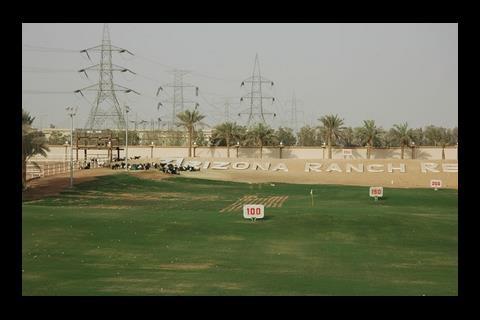
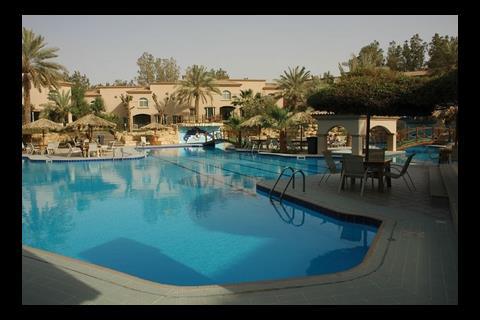
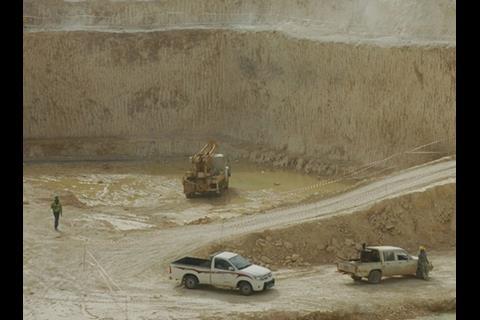
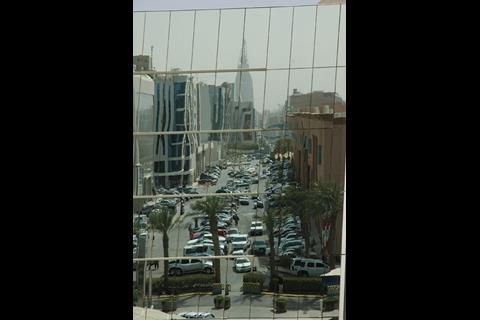







3 Readers' comments